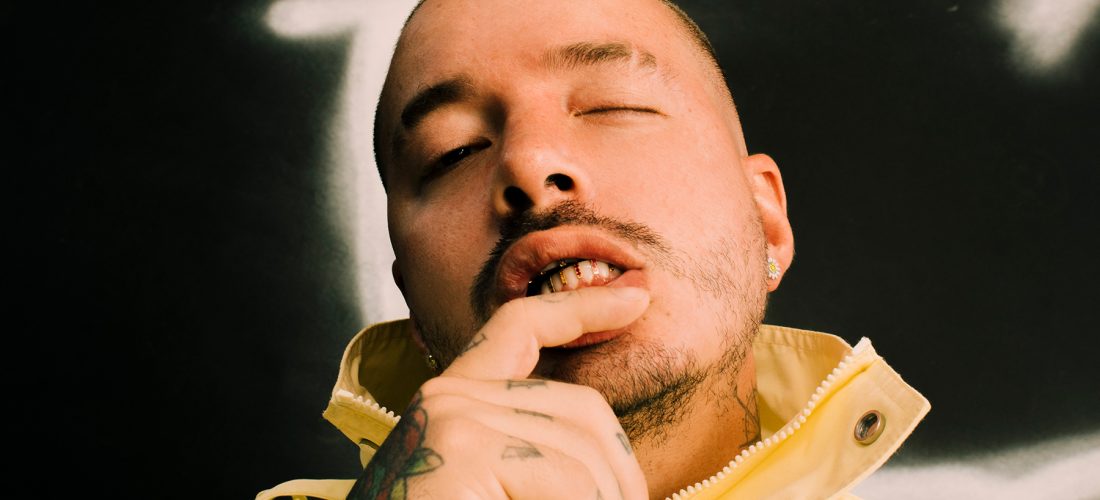J Balvin is Comfortable With Who He Is on ‘Jose’
Colombian singer J Balvin has established himself as one of reggaeton’s most successful ambassadors — and one of the most absurdly popular superstars on the planet. But on his sixth album, Jose, he tries to separate himself from his global celebrity and attempts to open a window into the person he truly is. He scatters deeply intimate details throughout the project — voice memos from mom and dad, a snippet of praise from his friend Daddy Yankee, and even the sound of his first child’s heartbeat. While he doesn’t break new ground on the record, Jose showcases an artist balancing who he is with what we expect, and holding happily in place.
The 2013 release “6 AM” set the foundation for what would be “sonido de Balvin” at its best; a sentimental version of reggaeton concocted with the aid of his go-to producer, Sky. The two grew together and, with co-producer Tainy’s legendary and rather heavy assists, birthed some of the best and most important Latin pop of the 2010s — especially 2018’s worldly Vibras, and 2019’s Oasis, a collaboration with omnidirectional wonder Bad Bunny. A few club-primed reggaeton songs like the chart-topping “Machika” aside, it’s often been the languid, smooth-operating riddims of songs like “Safari” and “Cuando Tu Quieras” that have always suited him best. He stays in that sweet spot here on tracks like “Que Locura,” the cheeky “Bebé Que Bien Te Ves,” with Feid, the after-hours-primed “Fantasías,” and “Pa’ Guayarte,” with Ozuna, who, over the song’s clean beat, is at his best in recent memory.
On Jose, Balvin balances his fixed sonic template with reggaeton’s heavy expectation for novelty. He swings and misses with crossover tracks featuring Khalid and Skrillex, in which U.S. stars feel like tourists. Instead, it’s when Balvin enlists forward-thinking artists like the Panamanian singer Sech, on “Una Nota,” that he taps into the new wave of reggaeton. Elsewhere, he revisits the early aughts and comes up with assured hits like the Yandel-assisted “Te Acuerdas De Mi” (which Sech also has a writing credit on).
At one point on the album we hear a clip from a 2020 awards presentation in which Daddy Yankee toasts Balvin, saying, “The purpose of a leader is to create new leaders.” While Balvin may not be moving the genre forward, his eye for emerging talent is undeniable: In 2018, Balvin featured Rosalía on standout “Brillo,” ahead of the release of the yet-dethroned El Mal Querer; and, more recently, he handpicked the likes of Rauw Alejandro. Here we get outstanding moments like “Otra Fili,” with Jay Wheeler, and “Qué Más Pues?,” with Maria Beccera.
Eight of the 24 tracks on Jose were previously released as singles, and most signaled a rather strained effort to suggest a more varied and dynamic album than we actually got. Instead, Jose ends up feeling mostly familiar. Perhaps that’s exactly what it’s meant to be: the work of a 36-year-old dad who’s comfortable with his place in this moment, and happy with the team behind him, many members of whom get shouted out on the aptly named number “La Familia.” In a recent conversation with radio personality Zane Lowe, Balvin said, “This’ll be the first album where I’m like ‘That’s J Balvin.” In fact, that ends up being a lovely half-truth. This isn’t a new J Balvin, just the one we’ve known all along.
